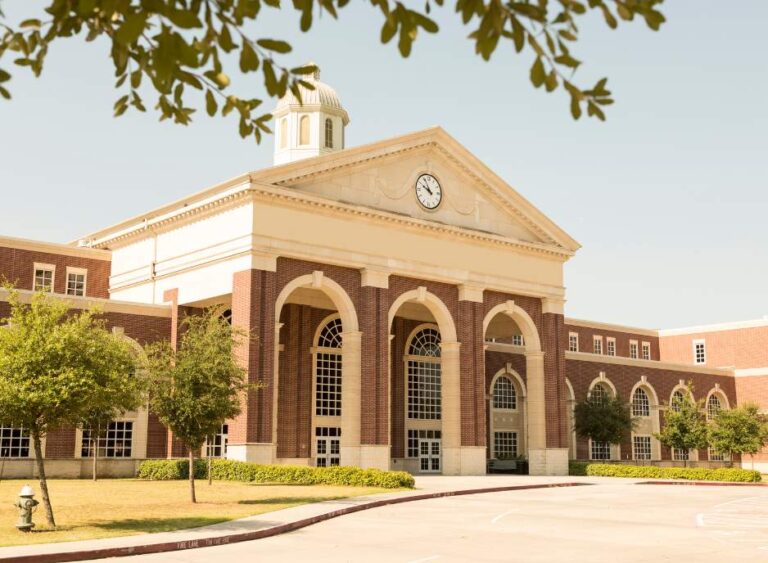Michael Maresco, Town Administrator, Town of Marshfield
In an interview with Invest:, Marshfield Town Administrator Michael Maresco emphasized the town’s unique location and thriving fishing industry as key drivers of its economy. He discussed the town’s $1 million federal grant, which will fund a partnership with Northeastern University to address climate resilience and promote growth in marine-related sectors.
What makes Marshfield a great place to live and work, and what drives its economy?
Our location — right between Boston and Cape Cod — makes us appealing, especially with our seven beautiful beaches. We’re a popular summer spot, particularly around July 4th. Fishing is a big part of our economy, with about 65 commercial boats. While we’re smaller than places like New Bedford or Salem, we’re the fourth largest lobster landing and among the top for tuna. We also have “six-pack” fishing, where boats take six people out for deep-sea fishing. Our location gives us access to some of the richest fishing banks in Commonwealth waters.
Marshfield is about 90% residential, with the town itself being the biggest economic driver. When I first got involved in government 30 years ago, we were 96% residential, and we’ve since grown our business presence while maintaining the town’s character. We also have over 4,000 acres in conservation, protecting the natural environment, including marshes, which are a key feature here.
Historically, Marshfield is unique. We’re coming up on the 250th anniversary of the American Revolution, and Marshfield, along with Boston, was one of the few Massachusetts towns that remained loyal to the Crown in 1775. There’s even a lesser-known skirmish with Minutemen that happened here before Lexington and Concord.
How will the $1 million federal funding for the Atlantic Resiliency Innovation Institute affect Marshfield?
This funding creates a partnership between the town, schools, Chamber of Commerce, and Northeastern University. The focus will be on climate-related projects, especially how rising sea levels will impact Marshfield. We’re also looking to grow economic opportunities in areas related to the marine and fishing industries since we have an active port.
The environmental aspect is key. Northeastern will help us assess climate resilience, especially in areas like Brant Rock, which is below sea level. It often floods during storms, so they’ll look at solutions — whether it’s rebuilding, adjusting zoning regulations, or other measures. One idea I’m considering is building a garage outside the flood zone so residents can move their cars during storms.
How will the partnership with Northeastern University shape Marshfield’s future and create job opportunities?
Once Northeastern is up and running, working with the town, Chamber of Commerce, and the schools, we’ll see job creation tied to climate resilience and the marine sector. If we make zoning changes for floodplains, for example, we’ll need construction jobs to elevate homes. There could also be jobs related to marine engines, rope and trap building, and access to fishing supplies, creating small businesses. This partnership will also benefit students, providing opportunities in marine sciences, mechanics, and environmental studies for those not pursuing traditional four-year degrees.
Northeastern’s expertise will also help with long-term planning, especially around climate challenges like sea level rise. For instance, our sewer plant is in a floodplain, and we may need to consider solutions like adding earth berms or submarine doors. Their involvement will bring credibility to these projects, which the community would want to support.
How would you describe Marshfield as a place to raise a family, in terms of affordability, lifestyle, and education?
Marshfield offers great value for the money. One unique aspect is our diverse socioeconomic population — we have a range from lower-income to wealthy residents, which creates a balanced community. Education is one of our strengths, and it’s a big reason my wife and I chose to live here. We have a strong school system and one of the best special needs programs. There’s a great collaboration between the schools and the police, with resource officers active in every school.
In terms of safety, we’re the fourth safest community in the United States, which makes Marshfield an attractive place to raise a family. Real estate values remain high because of our excellent schools, and our focus on maintaining a safe, welcoming environment.
As a coastal community, we also offer beaches, outdoor spaces, walking trails, and fishing opportunities, and we’re investing in more restaurants and businesses. We’ve asked the state legislature for additional liquor licenses to support new restaurant developments, particularly in areas like Brant Rock, which has untapped potential for economic growth but faces challenges due to flooding.
Where do you see Marshfield’s business landscape evolving over the next decade?
I’m very optimistic. With the Atlantic Resiliency project, federal funding secured by Sen. Markey, and our partnership with Northeastern University, I think we’ll see significant growth. As Northeastern explores environmental impacts and climate resiliency, we can create new businesses related to marine life, engineering, and supporting industries like rope and trap production.
I also see a growing need for more restaurants, small family-owned businesses, and shops that connect to our environment and tourism, like sea glass or other local crafts. We recently had success with a local candy business, and I think more food-related ventures could thrive here.
One thing we’re really hoping for is a hotel. The Chamber of Commerce has been working to attract one for years, and it would greatly support our tourism industry. The chamber is a key partner in our efforts, working closely with the town, Northeastern, and the schools. They host major events like the upcoming Lobster Fest, which draws about 5,000 people to Brant Rock and celebrates our fishing industry, especially lobster. This will be the festival’s fifth year, and it’s always a big success.













